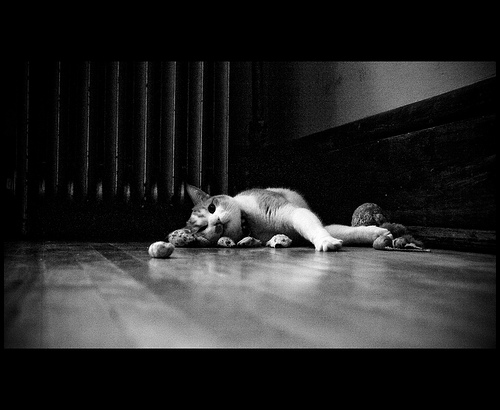
There are many health problems that can cause behavioral changes in cats, so before self-diagnosing, you should consult your veterinarian to rule out any potential health issues.
That said, if health issues have been ruled out, here are a few signs that may indicate depression in your cat:
• Increased vocalization
• Decrease or cessation in grooming
• Reclusive behavior
• Excessive sleeping
• Elimination outside of the litter box
• Loss of interest in toys or normal activities
• Lethargy
Cats are very sensitive to environmental changes. Have your recently moved? If so, make sure you take the extra time to get your cat used to the new environment change. Perhaps it’s a new baby, significant other or the loss of another pet in the household that’s causing it. Be present more often. Do not make anymore lifestyle changes at this time. Don’t change their litter or food at the same time. Do your best to reduce the stress factors around your cat.
Try to regulate their lives as much as possible with regard to food and playtime and perhaps add more scratch posts if they’re bored. Rotate his toys and provide some treats for him to find. As an indoor cat, your cat has a life expectancy of 12-18 years, but he might not be getting the mental stimulation he needs. Make sure you take the time to give him the attention he needs to be happy.
